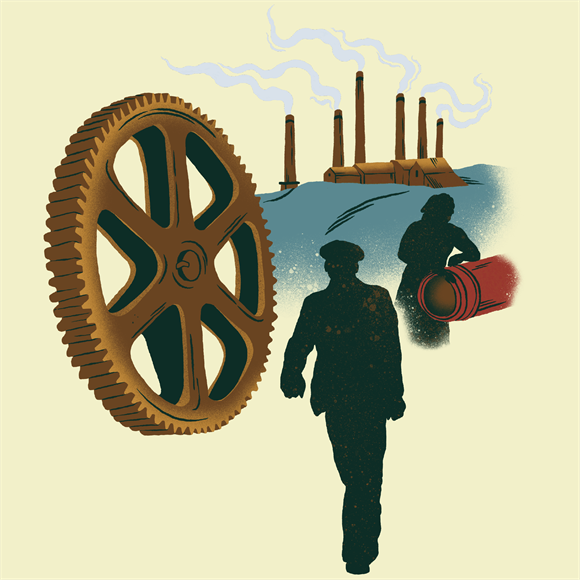
In the past Poole town would have been crammed full of heavy industry.
A Hive of Industry
This area has been home to a foundry, a factory and gasworks.
From the 1800s to the 1980s it would have been hard to miss the smoke from the chimneys of the foundries that sprung up all over Poole and its old town. They made everything from garden gates to steam locomotives.
A visitor to a foundry in Poole described the atmosphere:
“Once a pour had happened, the smell and the whole place was just swirling in smoke. The pour was quite quick, but these things would sit on the floor, and they would just bubble away, and people were walking around, through things like ghosts,”
Lewin’s Poole Foundry stood in this area in the 1870s. They made products ranging from agricultural machinery, drainage and window frames to steam launches, yachts and locomotives. The foundry closed in 1884 but in its heyday, ten years earlier, it employed 200 staff, Poole’s largest employer.
In 1902 Arthur Butler, a brush maker, bought the site and his business thrived right into the 1950s,the building was demolished in 1961.
Foundry Arms
The Foundry Arms was built in 1890 and stood opposite Lewin’s Poole Foundry. The building replaced an older public house called True Blue.
The pub was once renamed The Shopper’s Pub, to try and encourage people to stop in for a pint after a visit to the newly built, nearby supermarket. The name was soon changed back!
Gasworks
In the 1500s and 1600s the marshy piece of land known as Pitwines, was used as a dumping ground for the waste from the town.
In the early 1900s, The Bournemouth Gas and Water Company, based at East Quay, needed to expand to match the demand for gas from a growing population. The site at Pitwines, behind their head office in Beech Hurst, was just what they required.
By December 1925 construction was complete, and gas manufacture commenced on the site.
Did you know?
- If you keep an eye out for lampposts, drain covers and other street furniture, you can still see evidence of Poole foundries today
- Foundries have a history of reusing and recycling scrap metal to manufacture new items, steel can be used again and again.